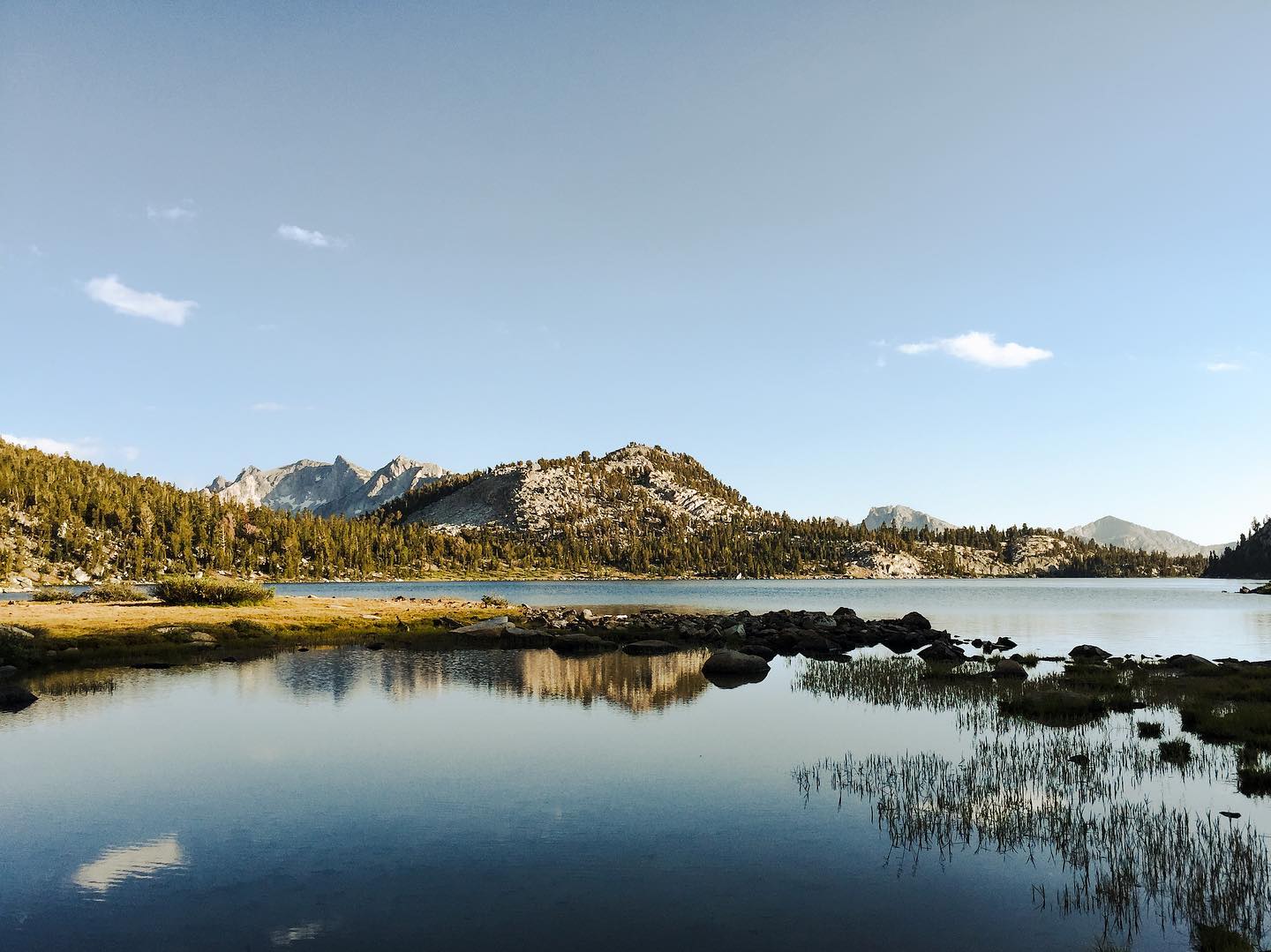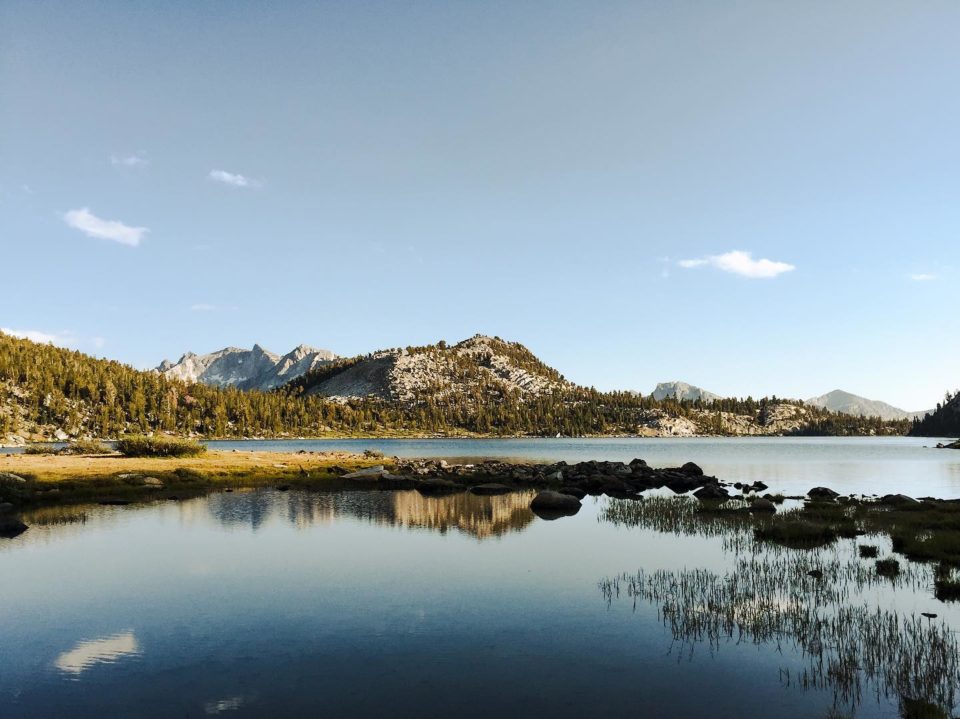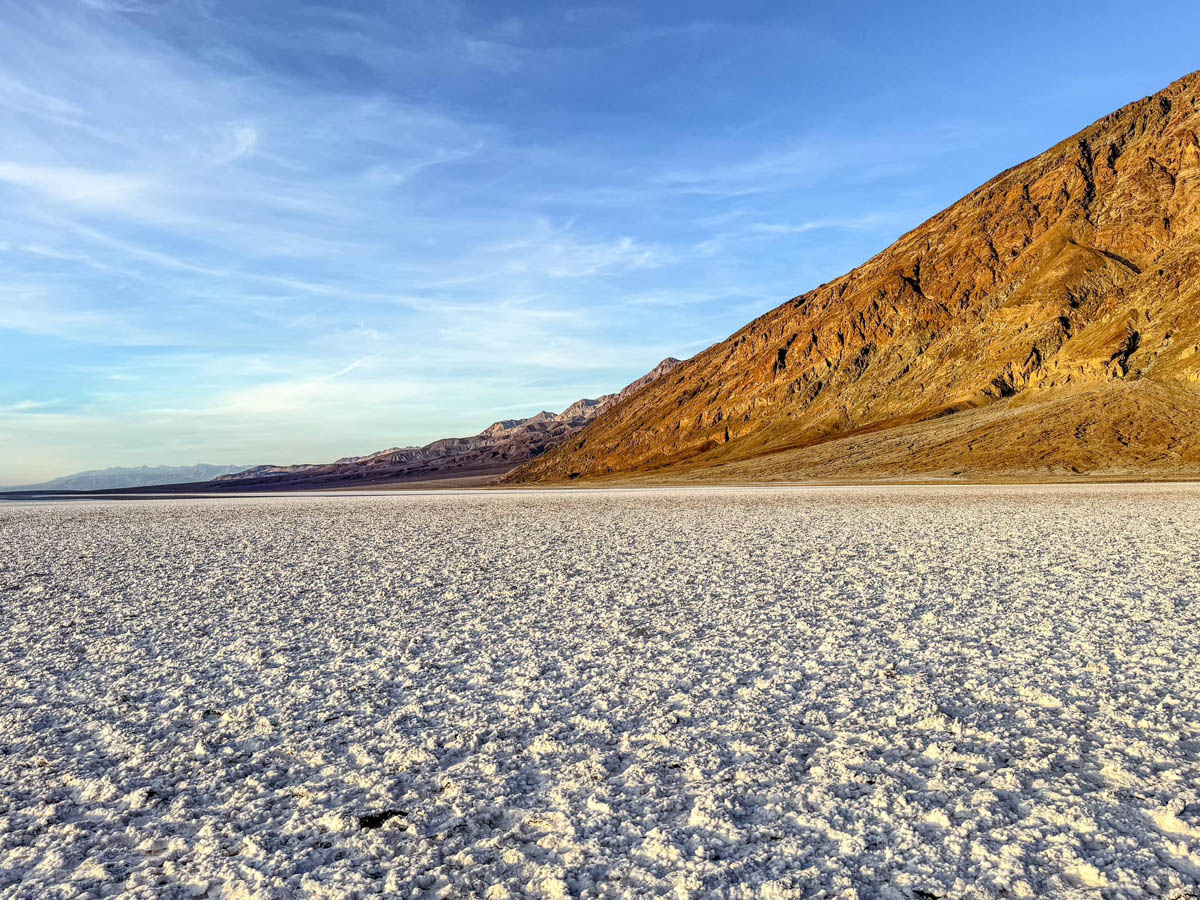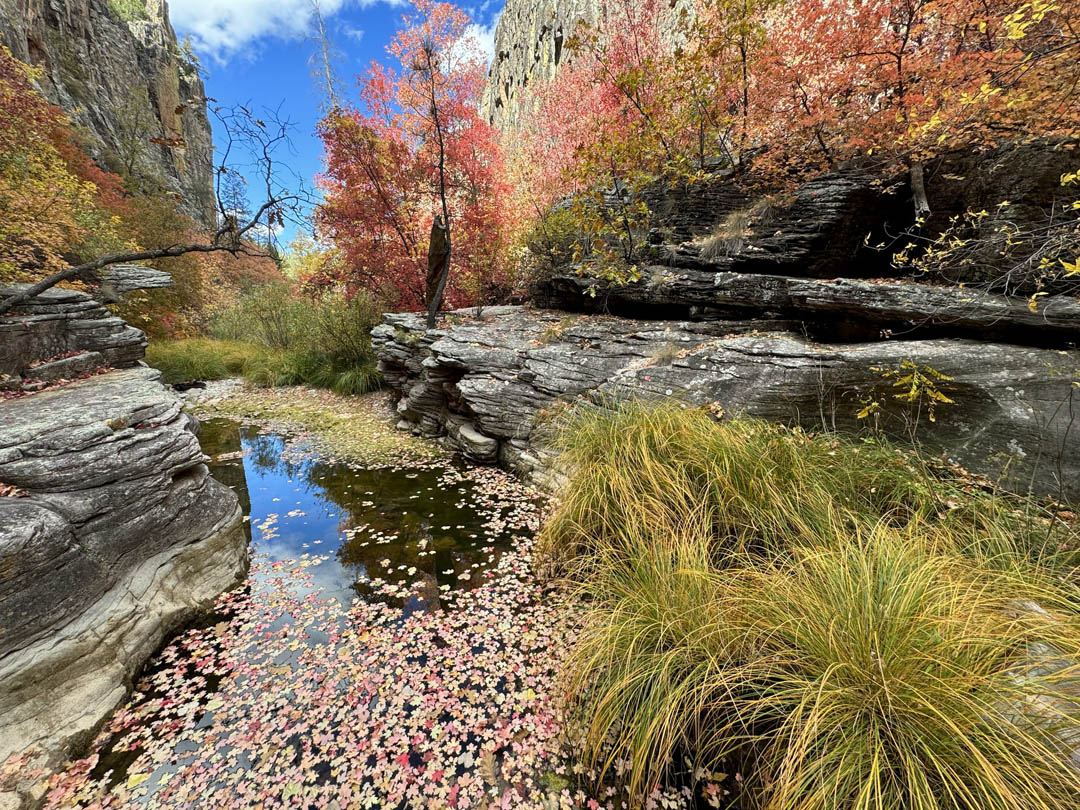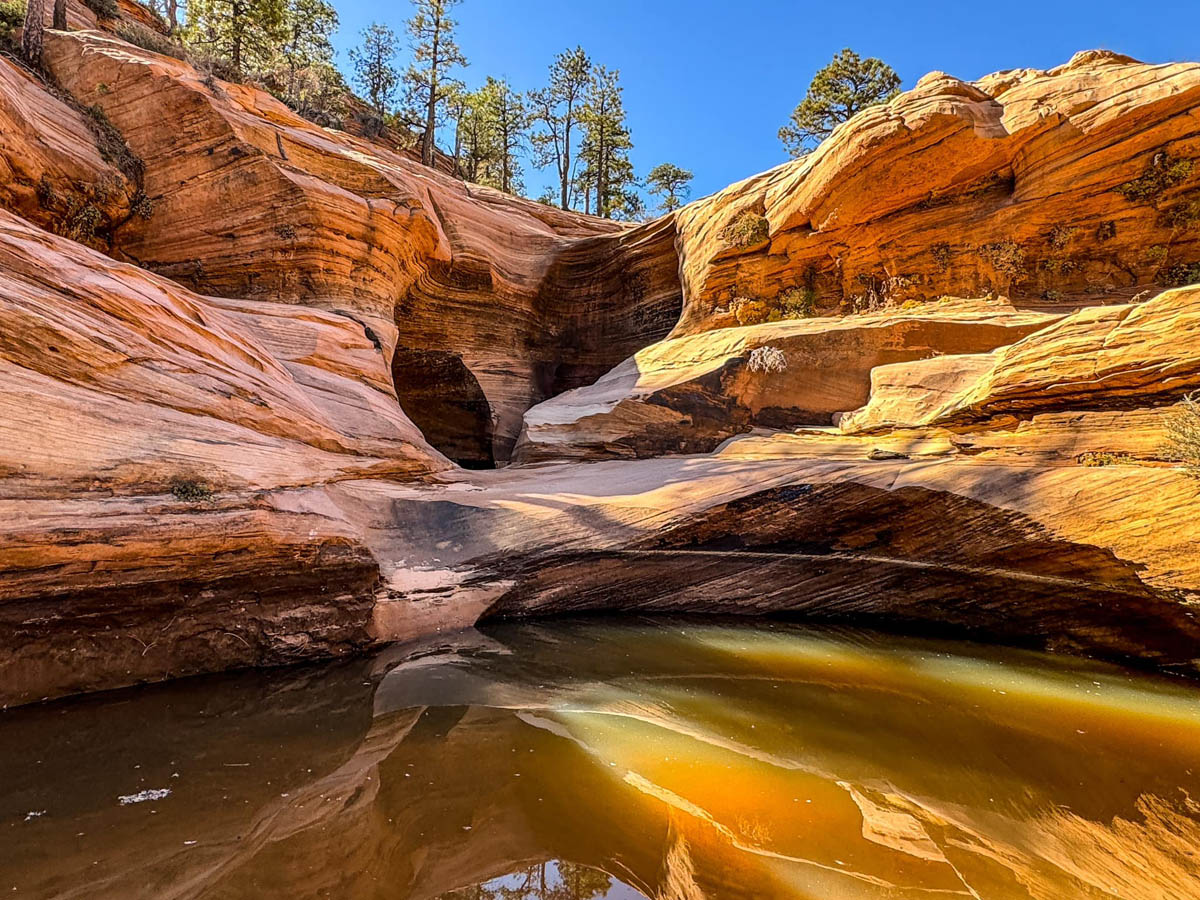Hidden within the breathtaking Sierra Nevada mountain range in California, the John Muir Trail (JMT) stands as a pinnacle achievement for hikers and outdoor enthusiasts. Stretching approximately 211 miles, this legendary trail traverses some of the most stunning wilderness in the United States. In this comprehensive travel guide, we’ll delve into the essentials, tips, and the sheer awe-inspiring beauty that awaits you on the John Muir Trail.
About John Muir and His Legacy
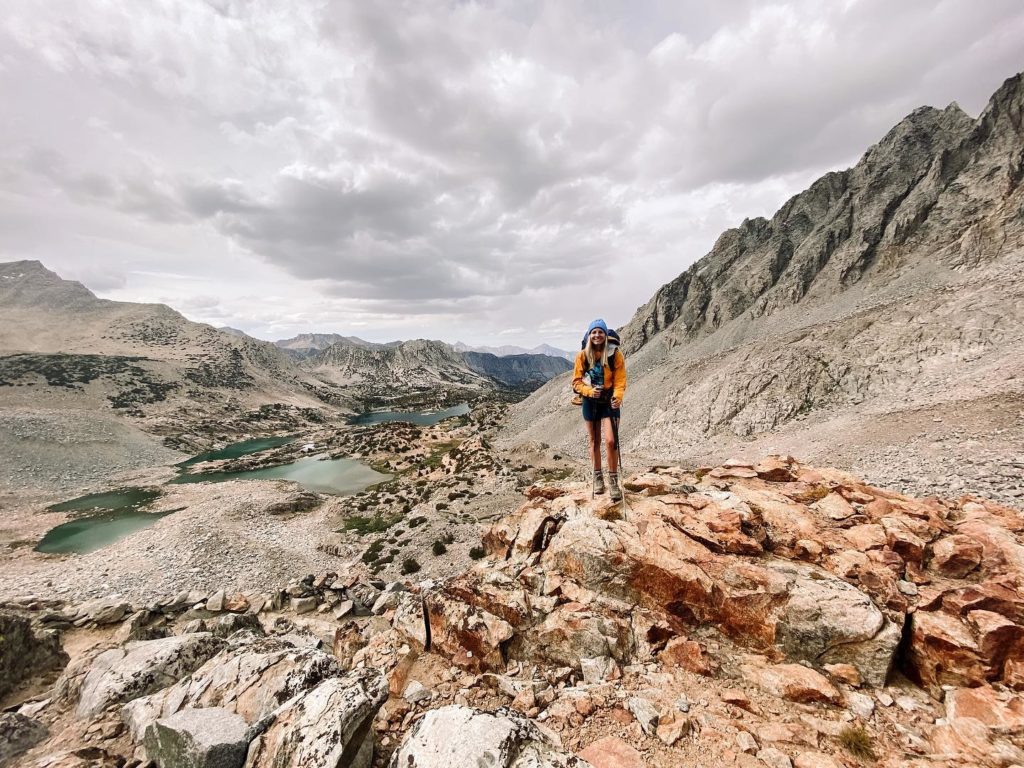
Named after the renowned Scottish-American naturalist John Muir, the JMT offers an opportunity to walk in the footsteps of the man who passionately advocated for the preservation of wilderness areas. Muir’s tireless efforts eventually led to the establishment of the National Park System, of which many portions of the JMT run through.
Trail Basics
- Location: The John Muir Trail spans from Yosemite Valley in Yosemite National Park to the summit of Mount Whitney, the highest peak in the contiguous United States.
- Distance: Approximately 211 miles.
- Duration: Hikers typically take around 2 to 4 weeks to complete the trail, depending on their pace and the number of rest days taken.
- Permits: Permits are required for all overnight stays along the JMT. You can obtain these permits through a lottery system or by making a reservation well in advance. Be sure to check the National Park Service website for current permit details.
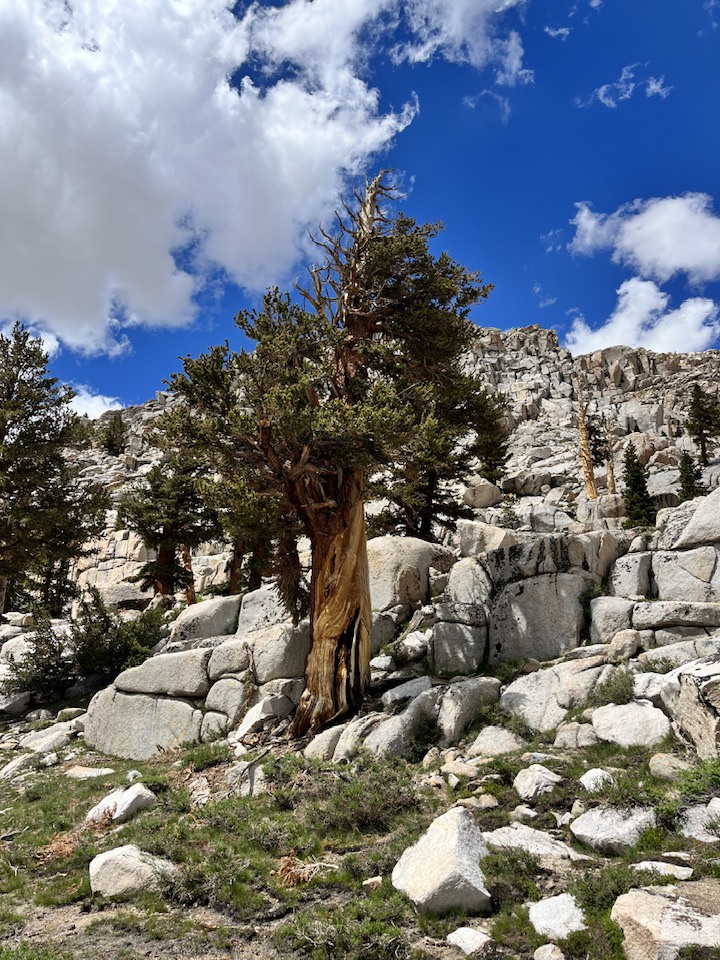
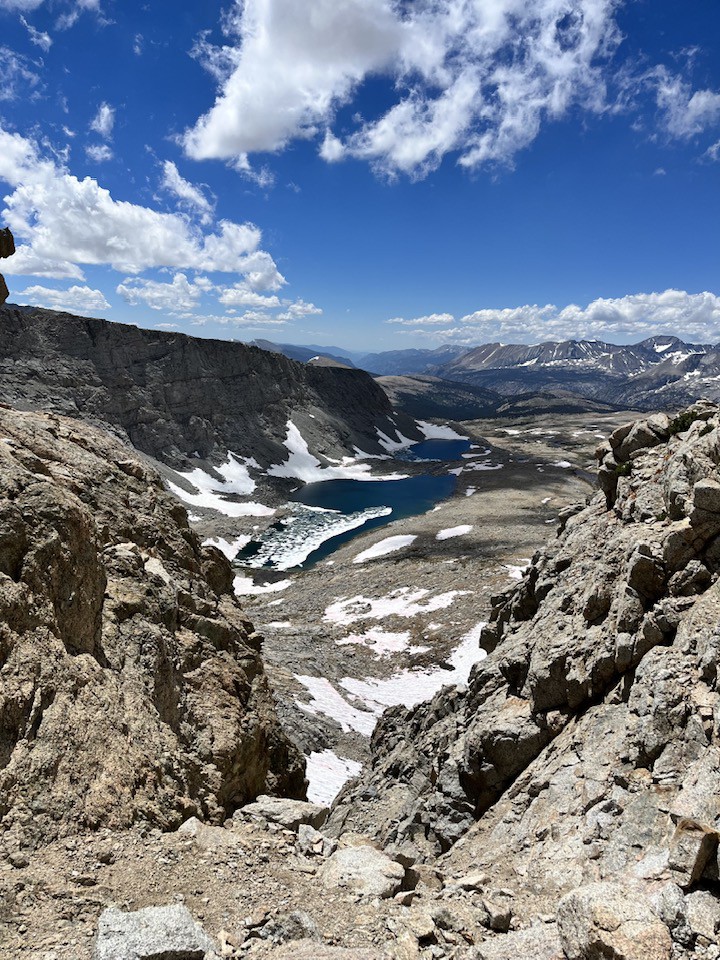
When to Hike
The JMT is typically accessible from June through September. However, the best time to hike varies depending on your preferences:
- June to July: Early season hikers will witness snow-covered landscapes and the rush of high-flowing rivers. Be prepared for colder temperatures and challenging stream crossings.
- August to September: Late summer hikers enjoy milder weather and fewer bugs. Snow levels decrease, making river crossings less treacherous.
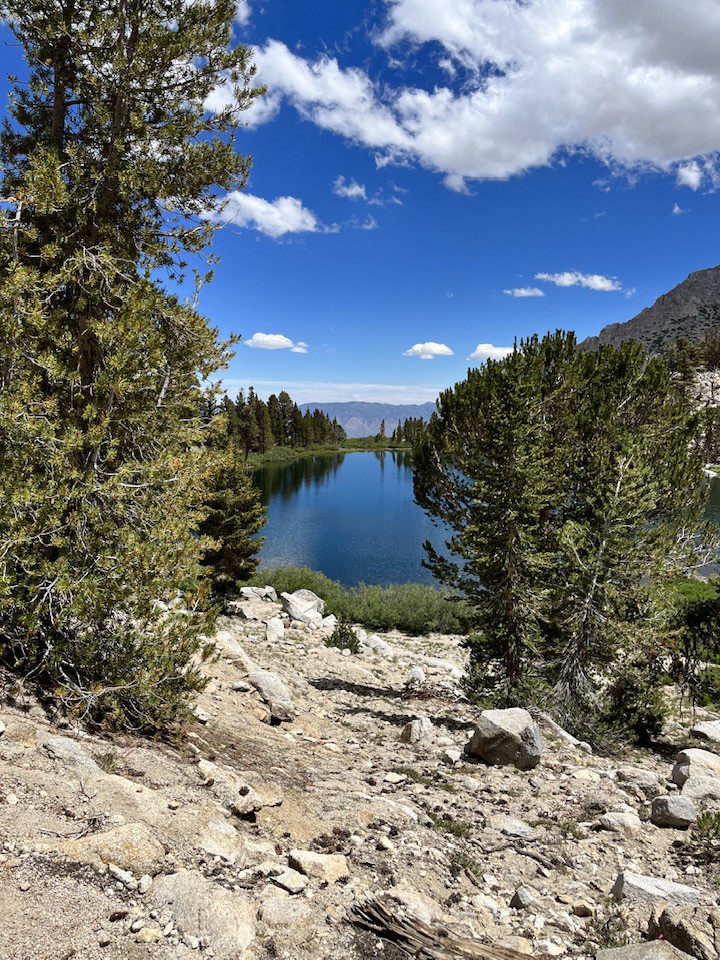
Trail Highlights
- Yosemite National Park: Start your journey in Yosemite Valley, where you’ll behold iconic landmarks such as Half Dome and El Capitan. The trail leads through pristine meadows and along the banks of the Merced River.
- Ansel Adams Wilderness: Marvel at glacial lakes and towering peaks as you pass through this stunning wilderness area.
- Kings Canyon and Sequoia National Parks: Traverse deep canyons and ancient groves of giant sequoias, including the General Sherman Tree.
- Mt. Whitney: Conquer the highest peak in the contiguous U.S. before reaching the southern terminus of the trail.
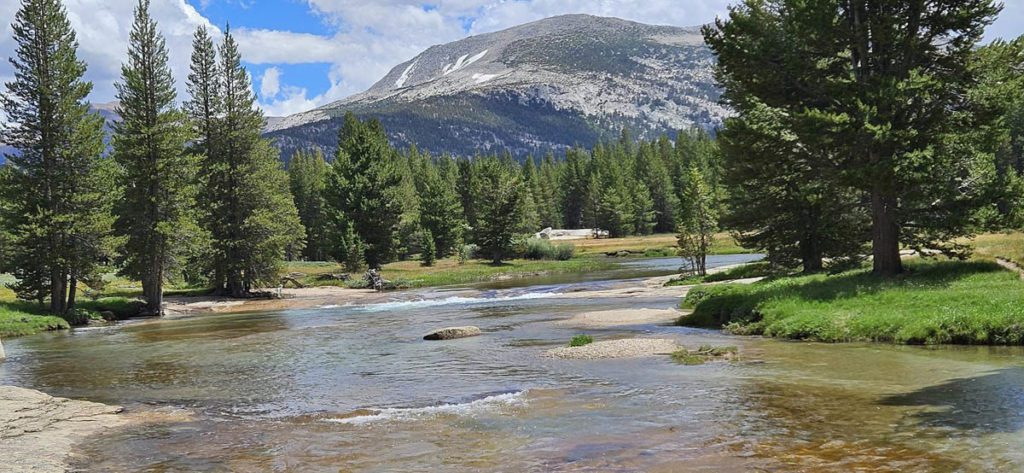
Trail Tips
- Physical Preparation: The JMT is a challenging trail, so it’s essential to be in good physical shape. Train for long hikes and elevation gain before embarking on this journey.
- Resupplying: Plan your resupply points carefully, as there are limited options along the trail. Common resupply points include Muir Trail Ranch, Vermilion Valley Resort, and the town of Independence.
- Leave No Trace: Practice Leave No Trace principles to protect the pristine wilderness along the JMT. Pack out all trash, avoid creating new trails, and follow camping regulations.
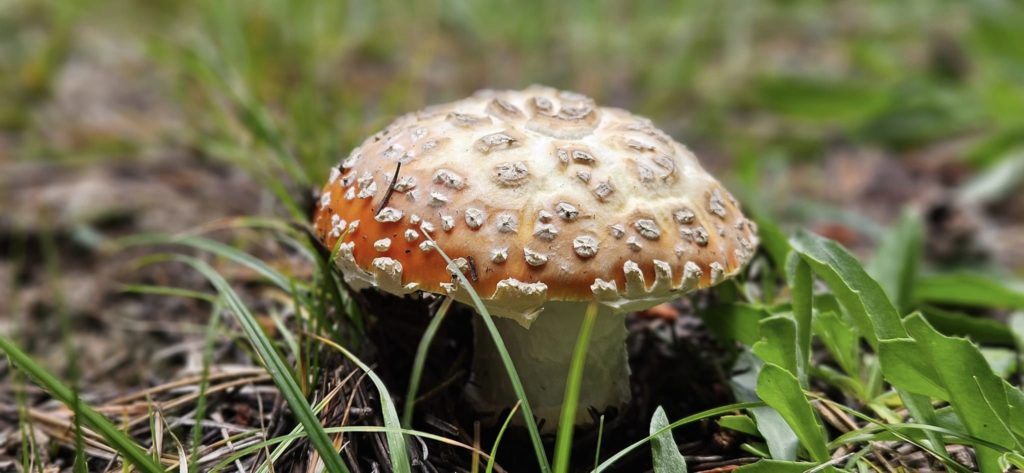
The John Muir Trail is more than just a hiking expedition; it’s a pilgrimage through some of the most awe-inspiring natural landscapes in the United States. Whether you’re a seasoned backpacker or a newcomer to long-distance hiking, this trail promises an unforgettable journey through the heart of the Sierra Nevada. As you follow in the footsteps of John Muir, you’ll not only experience the beauty he fought to protect but also find a profound connection to the wild places that continue to inspire generations of adventurers. Prepare, plan, and embark on this life-changing adventure along the John Muir Trail – a true trekking paradise.

